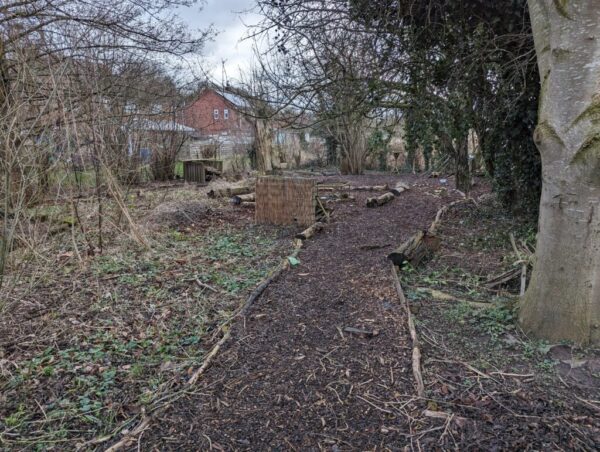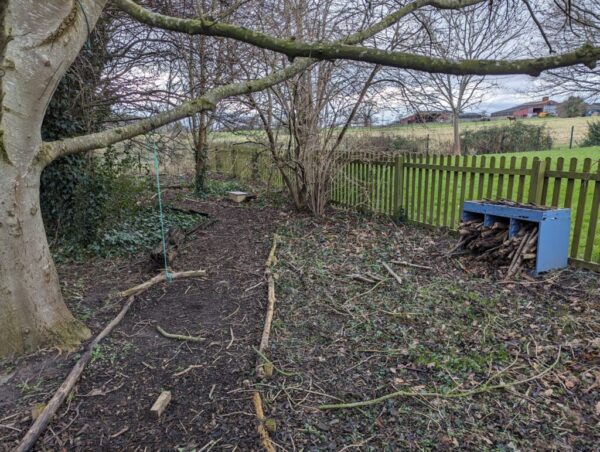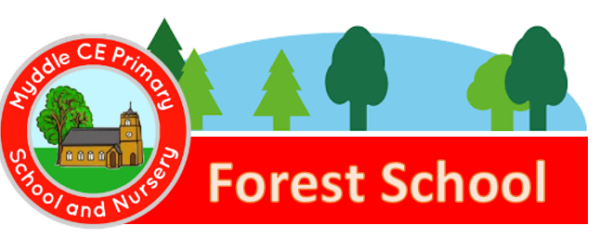
We have a Forest School site in our ground, and also make use of our extensive field and gardening areas at certain times of the year.
˜Forest School is an inspirational process that offers children, young people and adults, regular opportunities to achieve and develop confidence and self-esteem through hands on learning experiences in a local woodland environment ˜ – Forest Education Initiative (FEI)
The Forest School model originates in Scandinavia and involves journeying to a local woodland environment to learn outdoors on a regular sustained basis. It is a long-term child-led, educational process that promotes, observes and explicitly supports the social, emotional and physical development of children, young people and adults in an outdoor, preferably woodland, environment.
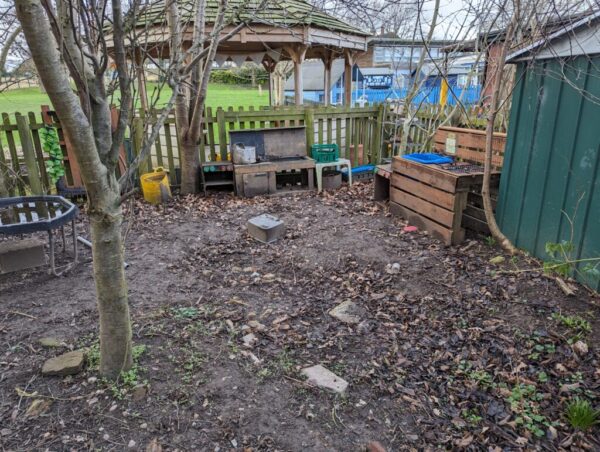
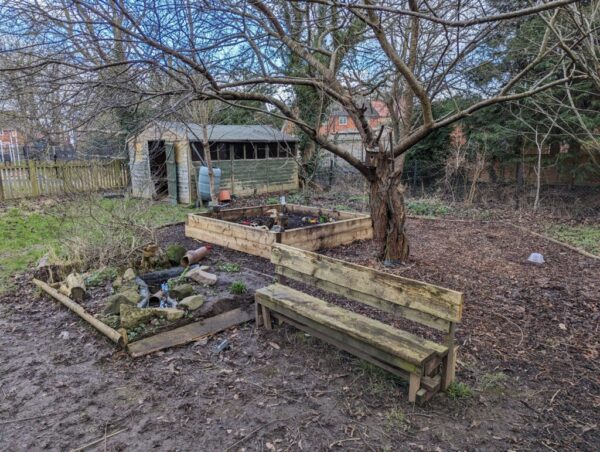
Many areas of the National Curriculum are intrinsically covered within a Forest School, but it is not intended to be curriculum-led. Forest-School activities fulfil all the areas of learning for the Early Years Foundation Stage.
Forest School projects provide regular access to an outdoor environment to enable the participants to feel confident and to achieve in that environment. Although Forest School sessions have a structure and a plan, there is a focus on free play and child led learning within that structure. Trained Forest School practitioners provide opportunities for children to realise their physical, emotional and social needs through skill and play-based activities. Forest School Leaders gradually facilitate a child led outdoor curriculum, and relationships based on trust and self-exploration are developed quickly.
Programmes are child led where the areas of interest are generated by the children or young people participating. This is achieved through observations and reviewing.
Forest School sessions help children learn to manage their emotions and handle relationships through child-initiated activities, scaffolded by careful adult questioning and intervention.
Skills learnt in Forest School can be transferred and developed. These are then established in children’s every day lives and inside the classroom.
The supportive environment allows learning to take place at an appropriate pace through personal exploration. Learning is self motivated. so builds children’s confidence. A dedicated time for reflection of experiences impacts learning to allow the process of personal growth.
